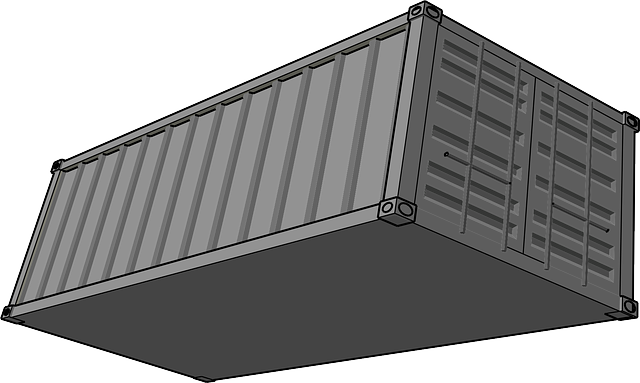For new trucking companies, cargo insurance is a vital tool to establish trust with shippers by offering comprehensive protection against risks like accidents, natural disasters, theft, and vandalism. This not only provides peace of mind but also differentiates the company as responsible and reliable, attracting more shipping opportunities. Effective communication about policy details and transparent claims processes further strengthen relationships, fostering long-term partnerships in a competitive market. In choosing an insurance plan, opt for tailored coverage including liability, collision, and cargo insurance to mitigate risks and ensure regulatory compliance, demonstrating a commitment to protecting shippers' investments.
In the competitive world of trucking, building trust with shippers is paramount. One of the most effective tools in this endeavor is strong cargo insurance policies. This comprehensive guide provides a basic overview of cargo insurance for trucking companies, delving into how it fosters trust, key policy components, and best practices for communication. By understanding and implementing robust insurance measures, new trucking businesses can enhance customer relations and stand out in a crowded market.
Understanding Cargo Insurance: A Basic Overview for Trucking Companies

Cargo insurance is a vital component of the trucking industry, offering protection for goods during transportation. For new trucking companies looking to build trust with shippers, understanding this aspect is crucial. It safeguards against potential losses or damages incurred during transit, ensuring that both the carrier and shipper are financially covered. Policies typically cover various risks, from accidents and natural disasters to theft and vandalism, providing peace of mind for all parties involved.
By offering comprehensive cargo insurance, trucking companies demonstrate their commitment to customer satisfaction and risk management. This assurance allows shippers to trust that their goods are secure, fostering a strong business relationship. For new entrants into the industry, investing in robust insurance policies can set them apart as responsible and reliable partners, thus attracting more shipping opportunities.
The Role of Insurance in Building Trust with Shippers

In today’s dynamic and often unpredictable logistics landscape, building trust with shippers is paramount for carriers to thrive in the new trucking era. Cargo insurance plays a pivotal role in this process by demonstrating a commitment to safeguarding the shipper’s interests. When a carrier offers robust cargo insurance policies, it sends a clear message: “We value your business and understand that your goods are valuable.” This reassurance fosters trust as shippers feel confident knowing their investments are protected.
Furthermore, having comprehensive insurance policies in place enables carriers to navigate potential risks and disputes seamlessly. Shippers are more likely to trust a company that can mitigate financial losses and provide peace of mind during transit. By embracing transparency and providing clear information about coverage details, new trucking businesses can build strong relationships with shippers, setting the foundation for long-term partnerships in an increasingly competitive market.
Key Components of Effective Cargo Insurance Policies

Building trust with shippers starts with robust cargo insurance policies that address key components vital to any new trucking venture. Firstly, comprehensive coverage protects against diverse risks, from accidental damage and loss during transit to unforeseen events like natural disasters or port delays. Secondly, clear policy terms and conditions ensure shippers understand their protections, fostering transparency and reliability.
Effective cargo insurance also incorporates rapid claims settlement procedures, demonstrating the insurer’s commitment to expedient resolution. Additionally, policies that offer real-time tracking and monitoring capabilities enhance visibility, allowing all parties to stay informed. These features collectively contribute to a secure shipping experience, solidifying the shipper’s trust in the trucking operation.
Implementing and Communicating Your Insurance Policies for Enhanced Customer Relations

Implementing and communicating robust insurance policies is a strategic move to build trust with shippers in the trucking industry. It demonstrates a commitment to protecting their cargo, fostering a sense of security and reliability. When choosing an insurance plan for your trucking business, consider comprehensive coverage that includes liability, collision, and cargo insurance. New trucking operations especially should opt for policies tailored to mitigate risks associated with the transportation of goods, ensuring compliance with regulatory standards.
Effective communication is key when it comes to insurance. Clearly explain the details of the policy to shippers, highlighting what’s covered, deductibles, and claims procedures. Provide easily accessible resources, such as policy documents and contact information for insurers, to encourage proactive discussions about risk management. Regular updates on policy changes or enhancements can strengthen your relationship with shippers, assuring them of your ongoing dedication to their cargo’s safety and security.
Building trust is paramount in the trucking industry, and cargo insurance plays a pivotal role in fostering strong relationships with shippers. By offering robust insurance policies that cover various risks, trucking companies demonstrate their commitment to protecting goods during transit. This not only enhances customer satisfaction but also positions businesses as reliable partners. Implementing clear communication strategies around these policies further strengthens trust and encourages long-term partnerships, especially in the competitive cargo insurance landscape for new trucking ventures.
